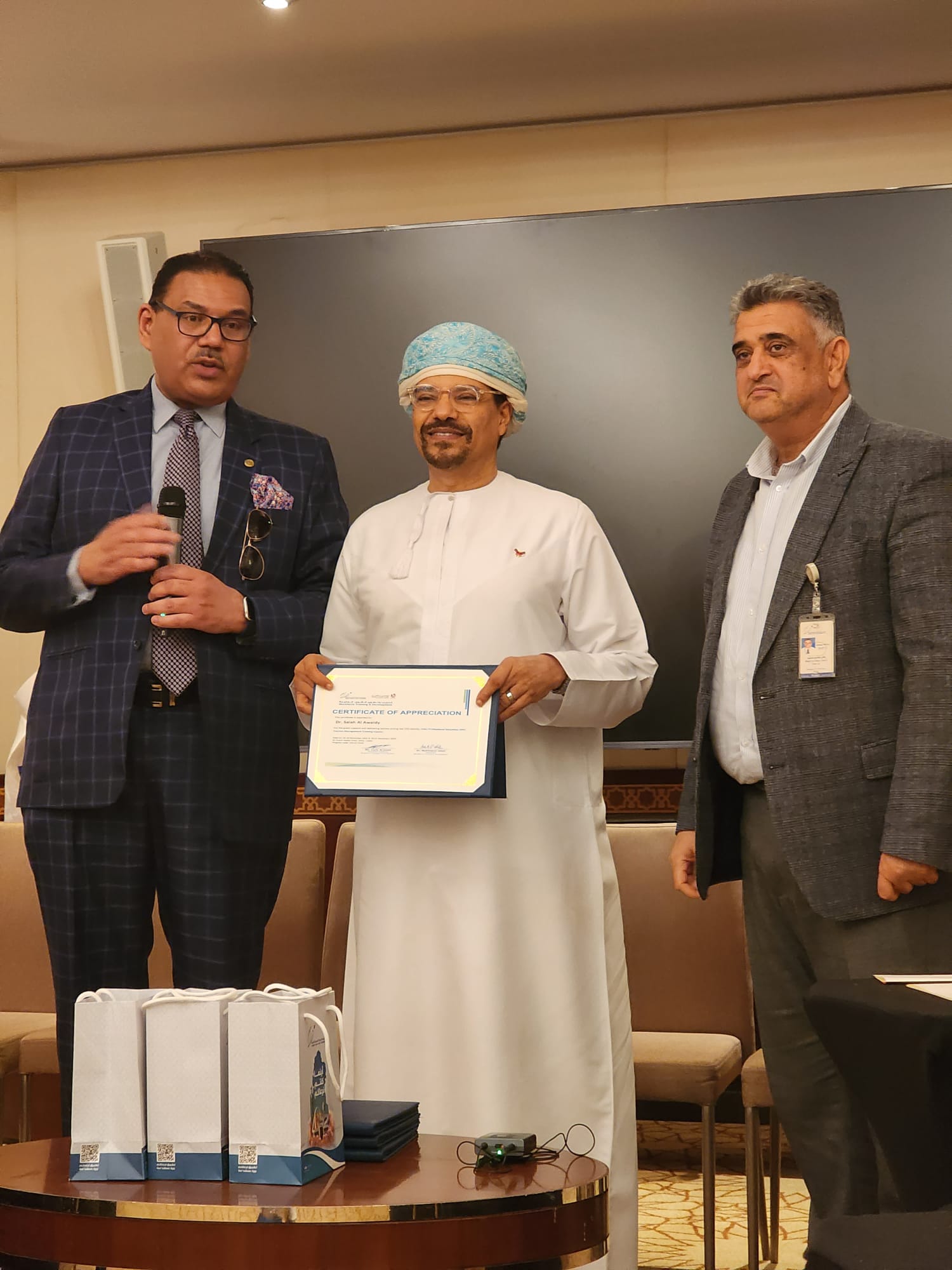Primary Health Care Corporation Organizes Interprofessional Education Workshop on Vaccine Management

The Public Health Protection Department of the Primary Health Care Corporation (PHCC) organized a workshop on Interprofessional Education for Vaccine Management from 14th to 21st November at the Grand Hyatt Doha Hotel which was attended by more than 90 PHCC staff including doctors, pharmacists and nurses.
This event was inaugurated by Dr. Khaled Al Awad, PHCC Director of Public Health Protection Department, followed by a welcome speech by Dr. Salah Al-Awaidi, Senior Consultant Epidemiologist and Communicable Disease Advisor in Oman, which presented the objectives and programs of this training course. On its first day, the program covered an overview of the workshop expectations, potential gaps and global policies for vaccine management as well as a learning assessment for participants.
In addition, Dr. Hayat Khogali, Vaccination and Communicable Disease Supervisor at the Ministry of Public Health, explained in detail the effective vaccine management from the launch of the project in Qatar in 2000, until it became a comprehensive administration in all departments within the chain of immunization supply. She also introduced the new tools used to support the implementation, which includes assessments, temperature management, vaccine storage, maintenance and inventory management and distribution of vaccines and dry products, and explained the outcome of the previous assessment, which requires adjustment before the next assessment.
“Practical Session”
Dr. Salah Al Awaidi delivered an explanation on the vaccine forecasting and budgeting and the best practices by dividing attendance into groups to discuss and resolve full-year vaccine budget planning presentations. This activity aimed at training participants on how to plan vaccine budgeting with the support of CDC staff.
Further, Dr. Salah presented the assessment of the efficiency and reliability of the cold chain and how it is implemented to boost the supply chain as well as prepare well for the future to sustain a reliable and flexible supply chain system in addition to addressing the challenges of storing and transporting different types of vaccines.
“Adjusting the Vaccine Refrigerator temperature”
At the end of the first day, a training was conducted for participants on how to adjust the temperature of the vaccine refrigerator (traffic light game), identifying the cold chain accidents and corrective actions in addition to discussing the PHCC emergency and contingency plans and innovations in vaccine storage and shipment.
The second day focused on recapping day 1 topics and discussing day 2 agenda. Dr. Salah Al Awaidi shed light on the basic principles of immunology, the causes of vaccine waste during storage, identification disposal and reporting of loss, and difference between waste and coverage. Furthermore, he explained ice conditioning and demonstrated how to prepare vaccine ice packs and boxes.
“Vibration Test”
In other respect, a coordinator from the Public Health Protection Department illustrated the types of vaccines which must undergo a vibration testing, the testing method, its importance and indicators. Dr. Salah Al Awaidi then concluded the second day with a collective activity followed an explanation of the calculation of the vaccine size, storage capacity and the estimation of the supply chain needs in PHCC, thus participants received training on the correct method of storage.
The third day commended with a recap of day 1 and 2 topics followed by a detailed presentation on the policies of multi-dose vials versus single-dose vials for vaccination and how they are used as an administrative tool. Besides to explaining how vaccines are arranged in the facility by using the vaccine refrigerator, ice box and inventory management in PHCC while demonstrating the optimal use of cold chain equipment, transportation, avoidance of stock outs, overstocking and provision of traceability in case of adverse events.
The coordinators of the PHCC Public Health Protection Department concluded the third day with a presentation on communicable diseases in Qatar and vaccine prevention, explaining the global and national situation of communicable diseases, describing the difference between the post-immunization adverse event, the side effects of the vaccine, methods of adverse reaction prevention, treatment and reporting as well as the flu that should be reported to the Ministry of Public Health and strategies of vaccine hesitancy management.
The workshop served as a platform for participants to enrich their skills and identify their individual improvement areas through the post-session questionnaire aimed at assessing participants' knowledge. The outcomes of the workshop challenged all vaccine professionals in Qatar and detailed several available tools that provide the basis for improving the vaccine quality and management.